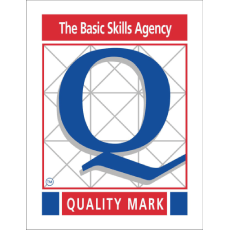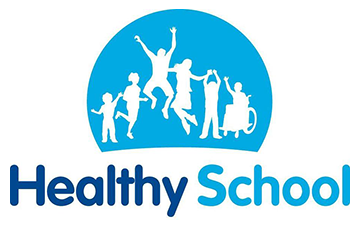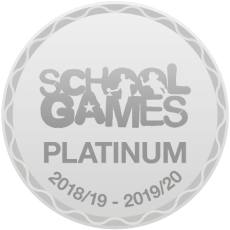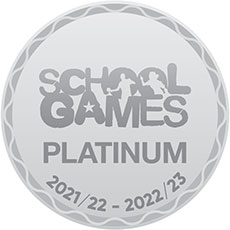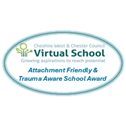Religious Education
Charles Darwin Community Primary School
RE Overview
Our intent
After 7 years of studying RE at Charles Darwin pupils will learn how to:
ask perceptive questions
develop critical thinking and empathy
develop perspective and judgement
have essential knowledge of religions and worldviews
Understanding of others’ worldviews is an essential first step to enabling each pupil to understand, reflect on and develop their own personal worldview, which is the core task of education.
What this looks like at Charles Darwin Community Primary School
The Education Act (1996) requires that Religious Education in community and voluntary controlled schools must be provided for all registered pupils in accordance with the local agreed syllabus (Cheshire West 2024). That every agreed syllabus shall reflect the fact that the religious traditions in Britain are in the main Christian, whilst taking account of the teaching and practices of other principal religions represented in Britain. Parents have the right to request the withdrawal of their child from part of or all religious education and teachers have the right to withdraw from teaching the subject.
As we are not a faith school, all RE teaching is delivered in a manner suitable for all to access, e.g “This is what most Christians believe” or “this is what some people think”. Some children may develop their own beliefs through RE lessons (whether this be through a particular faith, a sense of awe, or a decision to not believe) and all views are respected and developed accordingly.
It is important to keep in mind that R.E. makes a distinctive contribution to pupils’ spiritual, moral, social and cultural development in that it is dealing specifically the meaning, purpose and value of life. The importance of religious tolerance is also a key component of British Values and the Prevent Agenda.
Our RE curriculum is designed to meet the content requirements of the agreed syllabus and many of our lessons are also used in other CWAC schools.
Our RE lessons are based on a “big question” each half term, we make connections and collect clues to help us to answer the “big question”. Our work is concept driven and we focus on key words to develop religious literacy and equip us with the skills we need to discuss religion. Children currently learn about Christianity, Judaism, Islam, Humanism and Comparing Worldviews in Key Stage One, Christianity, Hinduism, Sikhism, Islam, Judaism, Humanism and Comparing Worldviews (Diversity, Equality and Justice, Science and Belief) in Key Stage Two. RE lessons often include, circle time, critical thinking, learning from believers (email or online interviews, visitors, film clips) and opportunities to unpack concepts through drama, art and ICT. Our RE helps us to learn about diversity in the UK and around the world. RE is taught weekly or in blocks.
EYFS
Religion and World Views in EYFS are, wherever possible, led by the children and allow opportunities to explore their personal experiences and questions which they have about the world around them. The RE curriculum includes opportunities for play, child initiated and adult initiated opportunities. During the year, the child will encounter Religion and World Views through stories, using specific words, special books, places, objects, events and where possible visiting places of worship and meeting believers. Events of a religious nature which are being celebrated in school will also provide opportunities for learning back in the classroom. There should be opportunities to develop a sense of wonder, to nurture curiosity, to let imaginations grow, have a sense of personal identity and an awareness and empathy for the world around them.
The content is, in majority, Christianity, but we also like to mark events and festivals celebrated by the children in class and the local community to allow the children to encounter beliefs which are different and promote uniqueness and diversity.
Click here for information about our Understanding the World curriculum.
The impact of our Religion and World Views Curriculum
Through our sessions, children have access to key words to help them to discuss, recall knowledge and understand religion in society. Specific skills for Religious Education will have been developed including;
Key Stage 1
retelling religious stories.
recognising symbols.
sharing my opinions.
asking questions.
responding positively to differences and similarities.
Key Stage 2
making connections between words of wisdom.
reflecting on their own values and those of a believer.
understanding different ways of life and ways to express meaning.
asking and having the skills to answer, ultimate and ethical questions from their viewpoint and that of a believer.
discussing issues and supporting the development of community cohesion whilst challenging prejudice.
Whole school
Each year group (1-6) uses similar methods of delivery to inspire and motivate children to understand and learn from the past. These include:
Using artefacts and images such as a WOW/question to the start of a topic as well as throughout the topic. Staff feel this will encourage the children to become RE thinkers, delving deeper and asking the questions that prepare them to be global citizens.
Use of IT to support learning and ensure the curriculum is accessible for everyone.
Outreach intervention: inviting people into school to talk about; demonstrate or talk about how their Religion shapes their life. This has the effect of bringing RE alive to the children and provides them with a more visual view of the topic they are covering.
Visits to local places of worship: the local Christian churches and Community Halls and the local Mosque.
Making RE accessible to all
At Charles Darwin the subject leader and teachers work together to ensure RE is accessible to all. We recognise the fact that we have children of differing ability in all our classes and so we provide suitable learning opportunities for all children by matching the challenge of the task to the ability of the child. We achieve this through a range of strategies which are differentiated in the main by expected outcome and/or support from peers or adults. Provision is according to pupils needs.
Cross Curricular Opportunity
English
RE contributes to the teaching of English in our school by actively promoting the skills of reading, writing, speaking and listening. Likewise, the children are required to transfer skills from English lessons into their topic writing.
Computing
Information and communication technology enhances our teaching of RE wherever appropriate. PowerPoints and presentations may be created using technology.
Spiritual, Moral, Cultural and British Values
Opportunity, through asking questions and puzzling answers to develop spiritually, morally and culturally throughout all Humanities subjects.
Art
We use art in religious buildings, special books and places to deepen our understanding of the importance of symbolism and visual stimulus.
Music/Dance
Opportunities are given to experience worship from many religions which leads to time for reflection, invention and creative arts.
Assessment
At Charles Darwin School assessment for learning is an integral part of the teaching process. Assessment is used to inform planning and to facilitate differentiation. The assessment of children’s work is on-going to ensure that understanding is being achieved; feedback is given to the children as soon as possible.
Encouraging pupils to reflect on their own learning, as well as their own developing worldviews, is done through peer and self-assessment.
Monitoring
Monitoring will take place in the form of termly scrutiny of three of the following areas:
sampling a range of children’s work (of varying ability) in floor books or on display
teacher planning
learning walks when RE is taking place
pupil voice
Roles and Responsibilities
The subject is led by Miss Bowers. Regular time is set aside to review and monitor curriculum provision and ensure training and resources are up to date.
Resources
We have a range of books and interactive boards to access the internet as a class. Visits are planned to enhance learning and give hands on activity. People with an interest, or expertise, in a particular topic or area of RE are invited into school to work with the children. These might be parents, grandparents, other family members, neighbours or representatives of the local community.
Impact
Charles Darwin children enjoy learning about other religions and why people choose, or choose not to follow a religion. Through their R.E. learning, the children are able to make links between their own lives and those of others in our own community and in the wider world.
Through R.E. our children are developing an understanding of other people’s cultures and ways of life, which they are then able to communicate to the wider community.
R.E. at Charles Darwin offers our children the means by which to understand how other people choose to live and to understand why they choose to live in that way. This understanding is invaluable in an ever changing and shrinking world.
*Parents have the right to withdraw from all or parts of the Religious Education curriculum.
Please contact the school if you wish to enact this right. *
Contact Details
Charles Darwin Community Primary School
Darwin Street
Castle, Northwich
Cheshire
CW8 1BN
Main Contact: Mrs Marianne Bennett (Headteacher)
Tel: 01606 75194
Fax: 01606 784143
admin@charlesdarwin.cheshire.sch.uk
SEND Contact: Mrs Joanne Thornton-Sharp
jthornton-sharp@charlesdarwin.cheshire.sch.uk
Governor: Mrs Alison Massey
chair@charlesdarwin.cheshire.sch.uk
Clerk to the Governors: Gemma Reeves
gemmalouisereeves78@gmail.com
